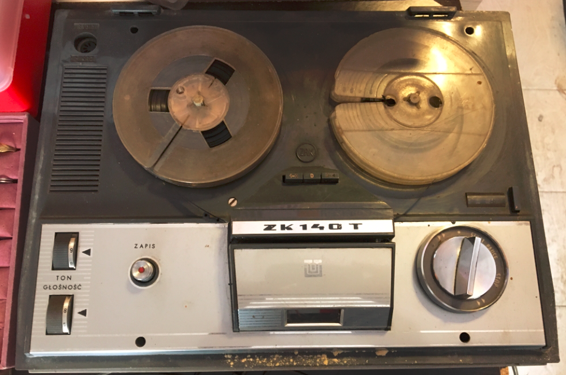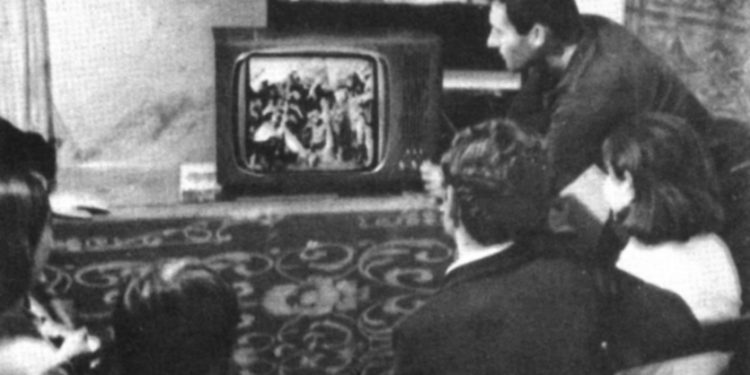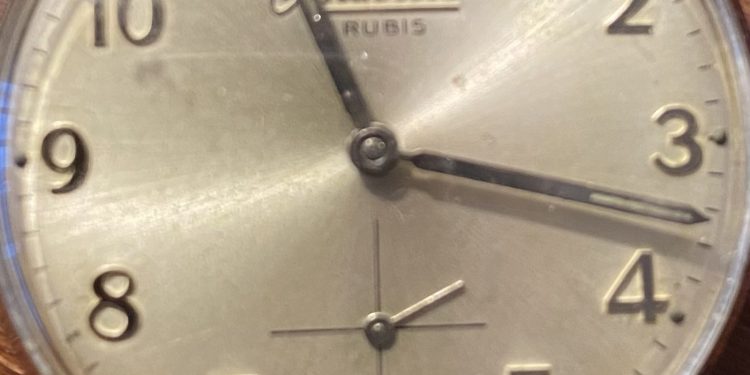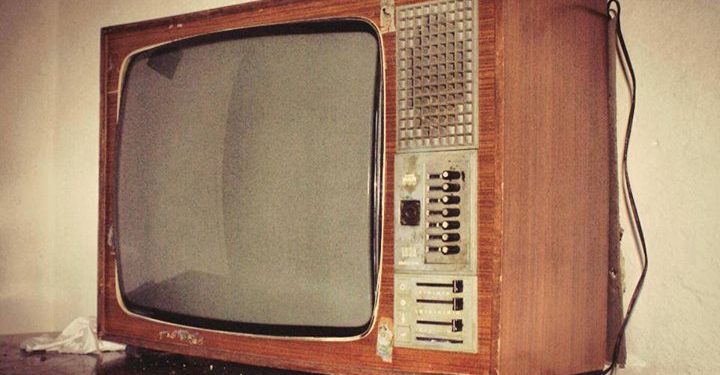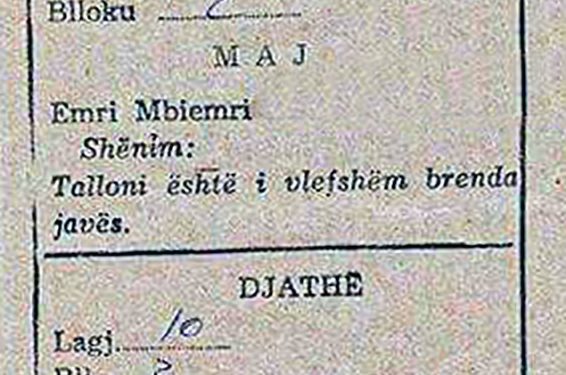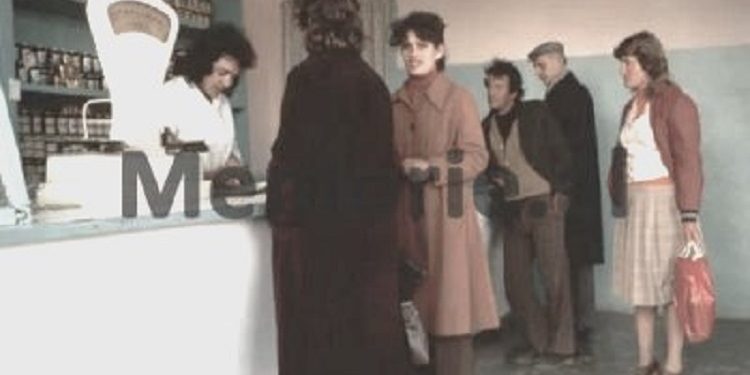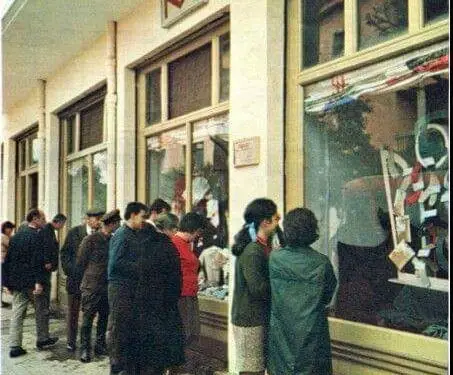Memorie.al / The lottery, a well-known phenomenon in Albania, practiced, preferred, and with luck attached: “If you were a winner, you could get an apartment, a bicycle, motorcycles, etc.” Everything was organized by the state, from the sale, propaganda, the draw, the winning numbers, which would be announced and published even in the only political newspapers of the time, “Zëri Popullit” (Voice of the People), “Bashkimi” (Unity), etc.
They were sold in hardware stores, at cigarette vendors, in shops, but also by a well-known, extremely popular person in Tirana, who, with a block of tickets in hand, would walk through the center of Tirana during the day, shouting: “Lottery, try your luck, with 5 lek you buy a palace.” I remember that man quite well, always wearing a hat, short, stout, and with a satchel hanging from his back. He sold them and took the money from the buyers. The tickets were of several types, with a modest value, and the cheap ones were the 5, 10, and 50 old lek ones.
Similarly, the official sports lotteries related to national championship matches, predicting exact results—if you were declared a winner, unlike the popular one, you would receive not money, but gifts as a reward. Especially during the national team’s international matches when they played in Tirana. Everything was published on the pages of the “Sporti Popullor” (People’s Sport) newspaper. At least until the late ’60s, when they were later banned by law. Those who implemented them, promoted them, or played them secretly were punished, even sentenced to prison.
Moving on to that other lottery, which, although known as such, was completely different in format, method of functioning, organization, spread, and massiveness, known as the “Clandestine Popular Lottery,” with which Albanians coexisted for years, and which we are presenting to readers as another narrative from the cycle of nostalgia.
THE CLANDESTINE-POPULAR LOTTERY “MADE IN ALBANIA”
Everything started after the ’70s. It was, and was called, a lottery model, but with a special, unique characteristic for the time and the system: Clandestine, banned, but also silently permitted by the state. A mechanism that exploded due to the minimal financial needs of the population and the impossibility of individuals giving or receiving loans. Meanwhile, another typical Albanian lottery emerged and appeared on the scene, which very quickly, in a short time, would be transformed into an extremely widespread and popular instrument.
A way of getting credit, but different and sophisticated. It is unknown where the idea came from, where it was first applied, whether it was borrowed or not, but it was perfectly adapted and widely spread in our country, considering the way it was applied and the fame and popularity it gained?! Simple, practical, quiet, very helpful, as massive in the momentum and spread it gained, as it was legally banned. After the ’70s and onwards, Albania was under the “dictate” of the unofficial, undeclared lottery, where everyone participated. The winnings also depended on the number of participants, and with the income from this lottery, you could buy something of considerable value that was impossible for a family otherwise.
There is no Albanian who has not been part of such a lottery, of a specific style for a socialist country, with which they dressed themselves or furnished their homes, at a time when wages were modest, and a television, washing machine, or refrigerator, essential for a family, could not be bought with the savings or the monthly or bi-weekly salaries that Albanians received in their workplaces. This was one of the reasons the clandestine-popular lotteries were born.
EVERYONE IN THE CLANDESTINE LOTTERY
The lottery was applied in workplaces, by intellectuals, in institutions, hospitals among doctors and nurses, mines, the school system (primary, secondary, and higher education), publishing houses, the “Shqipëria e Re” Film Studio, Albanian Radio-Television, and even in military units among officers, soldiers, etc. Especially in large enterprises, tailoring workshops, clothing and footwear factories, ready-made clothes facilities, military workshops, plants, factories, and combines, such as the “Autotraktorëve” (Auto-Tractors) one, the “Ali Kelmendi” Food Combine, “Misto Mame,” “Fabrika e Bukës” (Bread Factory), ports – almost all over Albania.
Even cultural and artistic centers among artists and singers. Lotteries of this format continued until the mid-2010s-2020s, says a former high school teacher (remaining anonymous), but they became increasingly limited until their disappearance. Credit options and other possibilities for obtaining and purchasing valuable items for a trip, vacation, house, apartment, private business, education, etc., had emerged and were being applied. However, for the time, that type of lottery remained unique, unlike any other model, not just in Albania, but even beyond its borders.
Generations today remember it as such – where everyone had been, and had participated, in that frightening, dangerous, and consequential, yet secure and quiet, application preferred as an opportunity to solve a family’s economic situations. Many parents entered these lotteries to enable their children’s education in Tirana, an engagement, or the wedding of a son or daughter when they were unemployed, students, etc. Of course, it wasn’t easy; it was an added sacrifice.
HOW WAS IT ORGANIZED?
First, the group was determined, with no favorites or selections. From the worker, the official, the simplest subordinate to the titleholders, the main leaders could participate; there were no limitations; on the contrary, the larger the number, the more it was reflected in the amount, although it lasted for a long time. The monetary value was determined by people’s desires and capabilities, reaching an agreement among everyone, ranging from 500, 1 thousand, up to 2 thousand old lek.
It began with a draw, but there were cases where someone had to take the money first, tied to different reasons, such as pregnant women, those getting engaged or married, who would request and discuss being granted this favor. And with mutual understanding, that’s what happened. Those who didn’t aspire to be first, as well as the younger people, could be left for the end. The others were by draw. The draw involved a numbered piece of paper, which was drawn when everyone was present. After receiving the paper, everyone was informed of the date.
No minutes were kept, no official document, also to avoid having such evidence as proof in case of any denunciation, although no one denied such a process. After the person received their wage, their salary (that’s how it worked at the time, bi-weekly), which started on the 1st and 16th for institutions, and later for enterprises, schools, etc., they would hand over the fixed amount to the organizer, who kept a list with the dates and names and collected the money. They were and were chosen as a trustworthy person.
But no one abused the system; on the contrary, correctness was primary. People did the math themselves and knew whose turn it was. Another way of winning depended on the number of participants in a cycle, and there were cases where a person entered two to three times. This was accepted by everyone, as a large number corresponded to such a sum. Salaries ranged from the minimal, around 2,500 old lek, to the average of 580, 600, for specialists, engineers, teachers, doctors, drivers, and something more for professors, directors, or those working in heavy labor, mines, prisons, which went up to about 8 thousand lek, etc.
For everyone, it was a valuable opportunity to receive such an amount and take it home to help the family. When one cycle ended, it was quietly spoken that another would begin immediately, asking who would participate. The number could reach up to 20-30 people. This mechanism functioned like this for years. Not only in Tirana but throughout Albania. What makes that method, that form of lottery – as forbidden as it was practiced – entirely special is the fact that everyone participated in it, from a party member, institution head, brigadier, to the simple worker, from the teacher to the lecturer, from the nurse to the doctor, the professor, etc.
THE GOVERNMENT AND THE STATE WITH A CLOSED EYE AND EAR
Although it was not allowed by the state, even though the state was aware, that lottery functioned normally and regularly, with astonishing massiveness, even though it theoretically constituted and was an evident risk. Punishing one case, one person, to set an example would have brought everything down, and fear would have prevailed everywhere. But no. Threats were only sporadic, even for justification, but there were no culprits or persecutors.
A surprising fact, which is accompanied by the state’s stance: even when the state was well-informed about this lottery, it permitted it, turning a blind eye and a deaf ear, despite it being clandestine and legally prohibited. An approving silence, in open contradiction to the law that was drafted and should have been enforced by the state officials themselves. What makes that method, that form of lottery – as forbidden as it was practiced – entirely special is the fact that in many cases, they themselves, their family members, relatives, friends, and colleagues were participants in this uniquely formatted lottery. The lottery had transformed, turned into a process of calm, natural, normal functioning, and it continued as such over the years.
WHAT WAS THAT LOTTERY FOR, WHAT COULD YOU BUY?
It served mostly those who were getting engaged to buy gifts in exchange for the well-known “tokens” (nishane) that the families of the two engaged people prepared. From “Darvil,” “Atlantic” watches that cost up to 15 thousand old lek, an obligation of the girl to the boy, along with the dowry. Then, for those on the verge of marriage, such a financial sum was a great help for buying the bedroom set, classic sofas, armchairs, which were sold in furniture stores, produced by “Misto Mame,” as well as for the wedding: from the groom’s suit that cost about 10 thousand old lek, the bride’s dress, to the orchestra, the singer, the taxi, the dinner, although that expense was covered by the guests’ contributions.
Also, to spend the “honeymoon” in the modest hotels or rest camps of the time, the new couple needed a sum of money. But the most classic purpose for which the lottery was a necessity was the purchase of a television, a washing machine, and a refrigerator. Although they required authorization for a while, and later, to secure household appliances, mainly a UEM 24-inch black and white television of the “Iliria,” “Adriatik,” “Butrinti,” “Lura” brands, which cost 45 thousand old lek, along with the stabilizer, it was impossible to buy and own one with the income from salaries and savings. The only way, the only opportunity served and offered was the enterprise’s lottery as an alternative, with the guarantee that it would provide the cash amount.
To continue with an “Obodin” refrigerator, highly preferred, coming from Yugoslavia, or the Italian “Ignis” ones, also 45 thousand lek. As well as washing machines, Yugoslav, Romanian, and Czech products. Such a modest financial sum obtained from the lottery served to furnish the home. The money received could also be put into the Savings Bank, which after the deposit would issue a passbook. At the moment of handing over the monetary value, no one would ask where you found that sum. They knew, but they didn’t react.
It was a sure fact that after receiving the lottery money, when people saw and heard that the family had acquired a television or refrigerator, it did not pass without comments from the neighborhood, friends, colleagues, relatives, and neighbors, as the news spread very quickly. Since a family’s financial income was known to everyone, such an out-of-the-ordinary move was noticeable, but it was understood, and the lottery appeared on the scene. To justify themselves publicly, family members made the source of the money clear. In a building where there was only one refrigerator, neighbors would bring meat, cheese, salami, etc., that they bought with coupons, to keep them fresh there. Similarly, to watch a movie or a match, whoever did not have a television would go down and knock on the neighbor who did. In many cases, some families guarded, kept the lottery money at home.
A FAMILY CELEBRATION
The anticipation and satisfaction of the person whose turn it was to collect the lottery money were great. After receiving the sum, it was shared as if it were a family celebration, with parents, children, etc. It was a help that supported families with problems, but that form, those lotteries, turned into a way or hope to have a sum of cash in hand, a dream for the time, which could be exploited and used for anything. There were cases when several members of a family participated in the lottery at the workplaces where they were employed. It was important to receive the lottery money at the end of the year, which served to celebrate the New Year a little differently, or to book a luxury restaurant for the time.
Similarly, during the summer period, when the family or couple went to the beach, such a sum had great value. But also for those with health problems, it was a considerable help. Not so much for buying clothes or shoes, as shops sold almost identical clothing, and similarly shoes, etc., which could be bought with normal monthly income?
NEXHMIJE HIDI: THE FORBIDDEN LOTTERY WAS EVEN APPLIED IN EMBASSIES
Such a fact is also confirmed by a former long-time employee, Nexhmie Hidi, a well-preserved woman even though she is over 90, who recount: “We did it secretly, among the female employees, from one embassy to another. But, they called me and criticized me,” she says.
Ms. Nexhmije, what can you recall regarding the lottery we are discussing?
I remember it very well, as it was widespread everywhere, throughout the country. Even among the Albanian personnel of the embassies, where most were women. We organized it as a help to buy what we couldn’t afford with the monthly income we had.
How did it work?
On the day we received our salaries, we would communicate, meet with each other, handing over the sum of money to one of the colleagues, who was assigned this job. She would give it to the one whose turn it was to receive it, which we knew. It continued like this, in turn. Of course, quietly, secretly.
Was it a contingent of selected women?
Yes, absolutely. I worked in one of the Western embassies accredited in Tirana, where they had their offices, but also their apartments. Of course, some of them were organized into the party, or families that certainly offered guarantees. And something like this could not be kept secret; on the contrary, they were the first ones interested in doing the lottery, even though it was forbidden. It was like a form of credit for the time.
Was the embassy staff curious about how you lived in your homes, what income you had?
Not much. There was no moment when we gave them an opportunity, or something they could understand something like this. The neighborhood, yes, as well as relatives. Especially when they saw an employee like us receiving a refrigerator or a television. They might think we were given them at the embassy, which was forbidden for us to take or accept as gifts. Our possibilities were known, and only through such a form as the lottery was it possible to secure a sum of money to buy something different. We tried to pass it without comment, even advising the children not to speak. Although they knew well, they also had information about this lottery.
Were there any disagreements?
No. Primarily we were women and personnel who were distinguished for correctness and behavior at work, in all our relations – those with the diplomatic corps, the embassy staff, our officials, our leaders, etc.
Could someone have reacted?
Yes, there were cases, and such a thing happened to me. It was a moment that worried me, that anything could happen. A party leader called me in; while discussing work matters, he also mentioned the lottery, saying: “What is this, how can it be, you are selected women and these forms should not be applied in such workplaces!”
What happened to you after this did them because you trouble?
No, nothing happened, and they didn’t cause me trouble. It ended there, with advice or a warning, and in the end, he told me; “be careful.” So, it was a signal. I didn’t tell anyone, only my husband, but a situation of fear and anxiety was created for me. Perhaps he might have called the others as well, but it wasn’t discussed among us.
And how did it continue…?
We couldn’t stop it; we continued, but more restricted in movement and communications. I judge that they, too, were family people and understood the situation, and that for us, such an income, such help, was a great thing. They kept silent, not because they didn’t know, but to be vigilant so that we wouldn’t be gossiped about, which could create unpleasant situations in a delicate sector like that of the embassies, where Albanian women worked. Until I parted with the job, those lotteries continued, even though many directors had changed. Memorie.al




